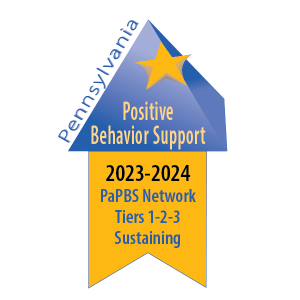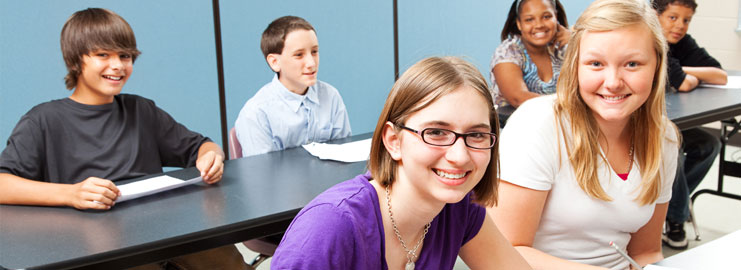Questions?
Glade Run is committed to helping you find the best solution for your child and family. Our Enrollment Coordinator, Kelly Wheeler, is happy to answer your questions.
Glade Run is committed to helping you find the best solution for your child and family. Our Enrollment Coordinator, Kelly Wheeler, is happy to answer your questions.


St. Stephen’s are licensed, private K-12 schools dedicated to providing a positive, safe and nurturing learning community. St. Stephen’s operates in two Western Pennsylvania locations — Zelienople and Utica. School districts may refer students online by completing our online referral form. Parents interested in St. Stephen’s as an educational setting for their students may contact their home school district.
With an innovative curriculum and an excellent student to teacher ratio, St. Stephen’s Academy offers enriched learning opportunities for every student:
Autism support classrooms provide a highly specialized environment to teach and strengthen positive social skills development. Facilities include a sensory room, gross motor room and model apartment. Students with autism thrive when education is creatively tailored to individual learning styles and the environment is responsive to sensory differences.
In addition to the universal interventions, our autism support education program provides:
The students and staff of St. Stephen’s Academy collaborate using the framework of our Sanctuary certification, School-Wide Positive Behavior Interventions and Supports (PBIS), Therapeutic Crisis Intervention (TCI), and the School as a Society model. Every interaction with a student is an opportunity to help them learn, grow and heal. Furthermore, St. Stephen’s Academy promotes growth through educational and therapeutic activities with an outdoor classroom, as well as utilizing the plants and animals at Glade Run Adventures.
School districts place students at St Stephen’s so that the child can benefit from therapeutic interventions in an educational setting. St. Stephen’s has been recognized in the past as a model program in Pennsylvania for School-Wide Positive Behavior Intervention and Supports.
Positive Behavior Interventions and Supports (PBIS) is a proactive approach to establishing the behavioral supports and social culture and needed for all students in a school to achieve social, emotional and academic success. Attention is focused on creating and sustaining primary (school-wide), secondary (classroom), and tertiary (individual) systems of support that improve lifestyle results (personal, health, social, family, work, recreation) for all youth by making targeted misbehavior less effective, efficient, and relevant, and desired behavior more functional.
St. Stephen’s is recognized by The Pennsylvania Positive Behavior Support Network (PAPBS) for high fidelity implementation of Positive Behavior Interventions and Support (PBIS), publicly distinguishing school wide sites for successful implementation of PBIS. In 2017, St. Stephen’s Lutheran Academy (St. Stephen’s) in Zelienople, PA was one of 18 schools across the state – and one of only four schools in the western region, and the first private school – to earn implementation with fidelity at all three tiers of PBIS. Since this time, St. Stephen’s has maintained this high degree of fidelity in our school.
“School as a Society” is a simple concept that views the school as a small society. Each teacher and teaching assistant thinks of their class as a “family unit” and involves their students in the development of the classroom as being “like a home”. This includes responsibilities and opportunities to develop goals, incentives, and even decorations that encourage a positive educational experience.
In addition, each classroom has a “Sister Classroom” with whom they develop a relationship similar to an “Extended Family”. These two classrooms work together to provide support, solve problems and have fun together, like an extended family. The combined “Sister Classrooms” in each hallway expand to the “Neighborhood” concept. “Neighborhoods” provide support for each other and work together to plan fun age appropriate activities and are responsible for their physical hallway space. Two “Neighborhoods” make up a “Community” in each school building. In addition to providing support, the “Community” assumes responsibility for all the common areas in their building, such as decorating hallways and keeping common areas clean.
The Therapeutic Crisis Intervention (TCI) training program for school staff presents a crisis prevention and intervention model designed to teach staff how to help students learn constructive ways to handle crisis. The ability of the entire organization to respond effectively to students in crisis situations is critical in establishing not only a safe environment, but also one that promotes growth and development. The skills, knowledge, and professional judgment of staff in responding to crises are critical factors in helping students learn constructive and adaptive ways to deal with frustration, failure, anger, rejection, hurt, and depression.
The Sanctuary Model is…
The Sanctuary Model is a way of guiding everyone in the school: leaders, teachers, teaching assistants, receptionists, custodians, support staff, children, and families to share the same values and language.
We call our shared values The Seven Commitments. We are committed to…
St. Stephen’s embraces the Sanctuary Model that helps people to heal from trauma and the impact of chronic stress in their lives. The Sanctuary model parallels many bully prevention programs in that it strives to develop a community of nonviolence. There are 4 concepts that guide the way we work and the way children heal and make progress in their lives- S.E.L.F.
Safety- Physical, psychological, social, moral
Emotions- Managing feelings without becoming self/other destructive
Loss- Feeling grief, coping with loss and preparing for change
Future- Re-establishing the capacity for choice
The Sanctuary Toolkit is made up of concrete or practical tools used to actualize the shared values and ensure the healing and functioning of the community. Community meetings occur every day during homeroom period and all students and staff participate. These meetings allow for the opportunity to identify and express feelings in a safe and supportive environment. Each person asks and answers three questions: 1. How are you feeling? 2. What is your goal? and 3. Who can help you achieve that goal? Community meetings promote a sense of belonging in the classroom setting.
Staff and students also develop a safety plan, which list five coping skills that are positive and appropriate for the school setting. These coping skills include activities that can be done alone as well as those that require assistance from others. Safety plans serve the purpose of maintaining safety through emotional management.
Red Flag reviews are an important Sanctuary tool that draws on an entire team’s knowledge and wisdom. It uses the group’s creativity to problem solve and become “unstuck”. A red flag review should be called to address any ongoing issue or concern. Anyone, including students, families and staff can call a red flag review.
Other tools in the toolkit may be used as necessary and include team meetings, and psycho-education lessons.
St. Stephen’s Lutheran Academy utilizes Glade Run Adventures experiential education activities for students attending ESY. These uniquely tailored activities, such as therapeutic equine activities, horticulture, and small animal experiences engage students with social skill challenges. Student IEP goals are targeted, monitored and reported to school districts. ESY runs Monday-Thursday 9am-1:30pm.
Pricing- $3,750/student